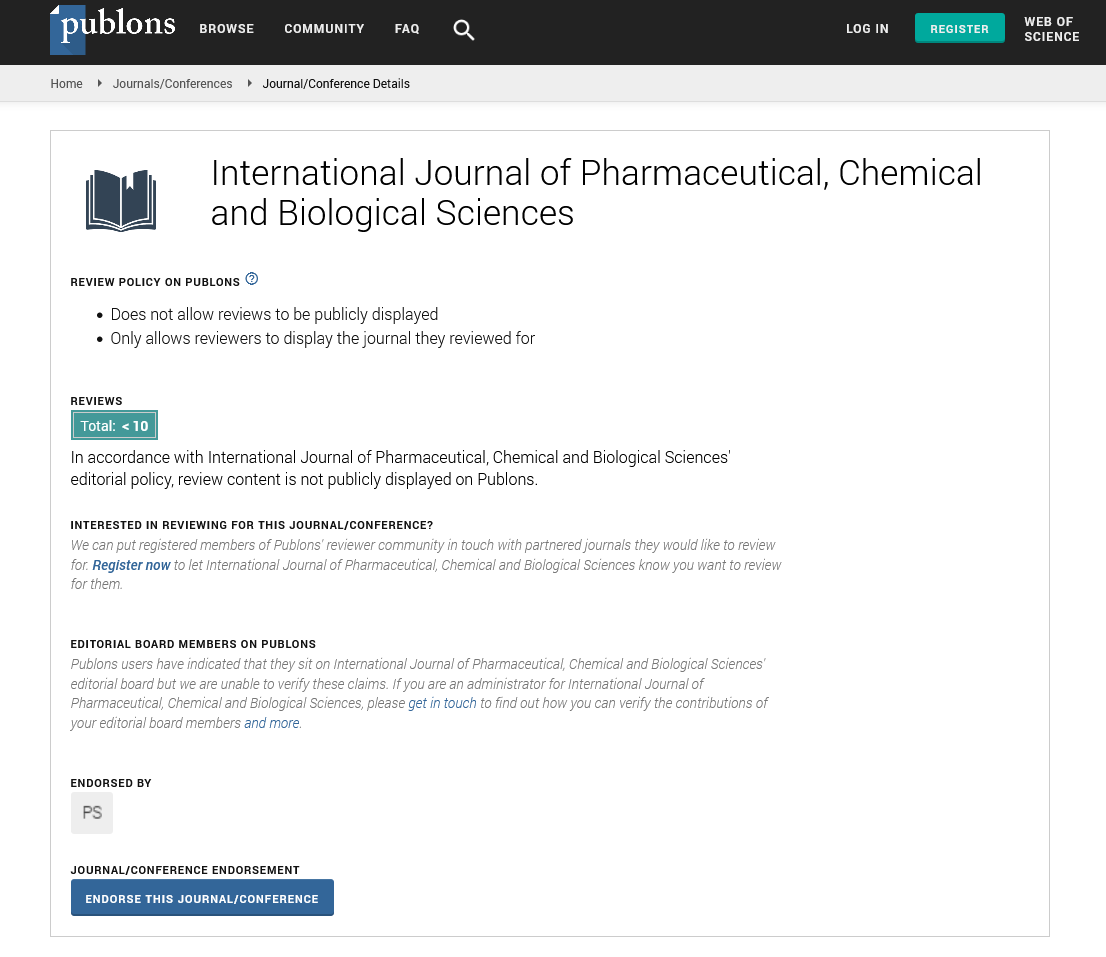Opinion - International Journal of Pharmaceutical, Chemical and Biological Sciences ( 2023) Volume 13, Issue 2
Pharmacogenomics: Personalized Medicine for Better Healthcare
Xiaung Ling*Xiaung Ling, Department of Chemistry, University of Bejing, China,
Received: 31-May-2023, Manuscript No. ijpcbs-23-113781; Editor assigned: 02-Jun-2023, Pre QC No. ijpcbs-23-113781 (PQ); Reviewed: 16-Jun-2023, QC No. ijpcbs-23-113781; Revised: 21-Jun-2023, Manuscript No. ijpcbs-23-113781 (R); Published: 28-Jun-2023, DOI: 10.36648/2471-9668-13.2.10
Introduction
Pharmacogenomics, often referred to as PGx, is a field of study that combines genetics and pharmacology to tailor drug treatments to an individual’s genetic makeup. This emerging discipline holds the promise of revolutionizing healthcare by making medical treatments more personalized and effective. By understanding how an individual’s genes influence their response to medications, healthcare providers can optimize drug selection and dosages, minimizing adverse reactions and maximizing therapeutic benefits. At its core, pharmacogenomics seeks to answer a fundamental question: Why do people respond differently to the same medication? The answer lies in our genes. Genetic variations can impact how drugs are metabolized, how they interact with target molecules, and whether they are effective or lead to side effects. The human genome is composed of over 20,000 genes, each with its own unique variations. These genetic differences can affect how an individual’s body processes and responds to medications. Enzymes in the liver play a crucial role in metabolizing drugs. Genetic variations in these enzymes can lead to variations in drug metabolism rates, influencing how quickly a drug is cleared from the body. Genes also determine the proteins and receptors in our bodies that drugs interact with. Variations in these drug targets can affect the drug’s effectiveness and potential side effects.
Description
Pharmacogenomics can help healthcare providers choose the most suitable medication for a patient based on their genetic profile. This approach minimizes the “trial and error” aspect of drug prescription, reducing the risk of adverse reactions and treatment inefficacy. Understanding how an individual metabolizes drugs can lead to more precise dosing. Patients can receive the right amount of medication to achieve the desired therapeutic effect without exposing them to unnecessary risks. Adverse Drug Reactions (ADRs) are a significant healthcare concern. Pharmacogenomics can identify patients at higher risk for ADRs, allowing for alternative treatments or closer monitoring to mitigate potential harm. In oncology, pharmacogenomics has played a pivotal role in developing targeted therapies that focus on specific genetic mutations in cancer cells. This approach can improve treatment outcomes while minimizing the impact on healthy tissues. While pharmacogenomics holds great promise, it faces several challenges on the path to widespread implementation. Analyzing and interpreting genetic data in the context of drug therapy requires sophisticated algorithms and data integration. Healthcare systems need to invest in infrastructure and education to facilitate PGx adoption. Handling genetic information raises ethical concerns regarding privacy, consent, and discrimination. Robust ethical frameworks must be in place to safeguard patients’ rights and data. Genetic testing can be expensive, which may limit its accessibility to some individuals.
Conclusion
As technology advances and economies of scale are achieved, costs are expected to decrease. Pharmacogenomics represents a transformative shift in healthcare, moving away from a one-sizefits- all approach to a more personalized and precise model of treatment. By harnessing the power of genetics, healthcare providers can optimize drug therapy, reduce adverse reactions, and improve patient outcomes. While challenges remain, the potential benefits of pharmacogenomics are too significant to ignore. As research continues and technology advances, we can anticipate a future where personalized medicine is the standard of care, providing better health outcomes for all.

